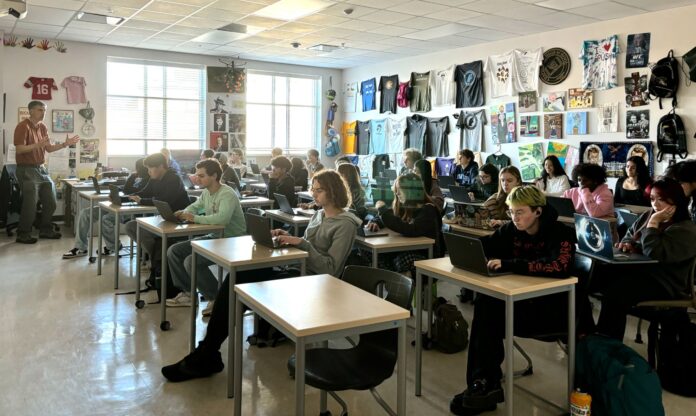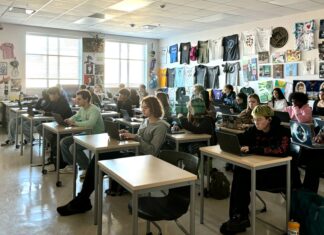
The Chapel Hill-Carrboro City Schools (CHCCS) Board implemented a new attendance policy this school year, offering optional exam exemptions for high school students meeting specific criteria. The policy aims to improve attendance across the district’s three high schools.
Under the new guidelines, students with 90% attendance—or who miss no more than 18 days during the school year—can skip final exams that are not state-mandated. Satisfactory attendance is defined as students attending 95% of the time.
District data from the 2023-2024 school year revealed that 28.7% of Chapel Hill High School students achieved satisfactory attendance. Teachers and administrators have observed positive trends since the exam exemption policy’s implementation.
AP Psychology and Economics teacher Dylan Wood has noted a significant improvement in student attendance since the policy was announced. “As a teacher and a coach, my athletes have definitely been here. They know the consequences are higher if they don’t show up,” he said.
Math teacher and administrative intern Michael Pulver, who has researched district attendance data, confirmed progress. “Over the last three years, as a district, we’ve seen some improvement,” he said. “For our school in particular, we’ve been working to get students attending as close to 95% of the time as possible.”
Some teachers say they have seen minimal change. English teacher Kimberly Lindekugel said her longstanding classroom attendance policy may explain why she hasn’t noticed significant differences. “Any policy, really, is only as effective as the adults in the building make it,” she said.
Assistant principal Allison Scercy highlighted the broader context behind the initiative. “Nationally, school attendance is low and has not returned to pre-pandemic levels,” she said. “Districts are trying to find ways to motivate students to attend regularly.”
While incentives like exam exemptions can encourage attendance, administrators warn they must be carefully balanced. Pulver emphasized the need to connect rewards with educational outcomes. “With incentives, you want to reward behaviors but also keep it educational,” he said.
Lindekugel echoed this sentiment, suggesting the policy should have more academic ties. “We shouldn’t just reward good attendance with skipping a final; we should want students to gain something from this policy as well,” she said.
Students have shared mixed reactions. Senior Sebastian Clapham expressed confusion about the policy’s specifics. “The policy has been working, but the part about excused versus unexcused absences is confusing,” he said. “It seems like they all just count toward your 18 days unless it’s sports-related.”
Freshman Ayesha Gandhi said the policy has motivated her to attend classes. “Most of my teachers explained it thoroughly at the start of the year, which was helpful,” she said. “It’s important to make students aware of the policy because it encourages attendance.”











